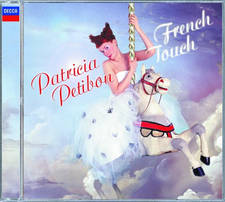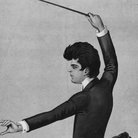Pietro Mascagni: Cavalleria Rusticana
The thing we tend to forget, in these days of iTunes and The X Factor is that the seemingly rarefied thing that is opera today was itself once a great money-making scheme.
A successful opera, with rave reviews in one country, could immediately transfer to opera houses around the globe, netting their composers and promoters massive financial rewards.
This was how it was for Mascagni, who was twenty-seven years old when his one-act opera Cavalleria Rusticana (which translates as ‘Rustic Chivalry’) won the Sonzogno publisher prize for the best opera of 1890. Mascagni was soon a name on the lips of those in the know in the drawing rooms and salons of Europe. Today, his opera is still there, a fixed part of many opera companies’ repertoires.
If only Mascagni could have repeated the feat, he might not have died almost penniless in liberated Italy in 1945. Nevertheless, his hit opera does contain one of the single most attractive tunes in operatic history – the Intermezzo. There are no words to accompany this part of the opera; instead it is a short piece of orchestral music used by the composer to denote the passage of time.
Recommended Recording
Julia Varady (soprano) as Santuzza; Carmen Gonzales (mezzo-soprano) as Lola; Luciano Pavarotti (tenor) as Turiddu; London Opera Chorus; National Philharmonic Orchestra; Gianandrea Gavazzeni (conductor). Decca: E4443912.
Illustration: Mark Millington


